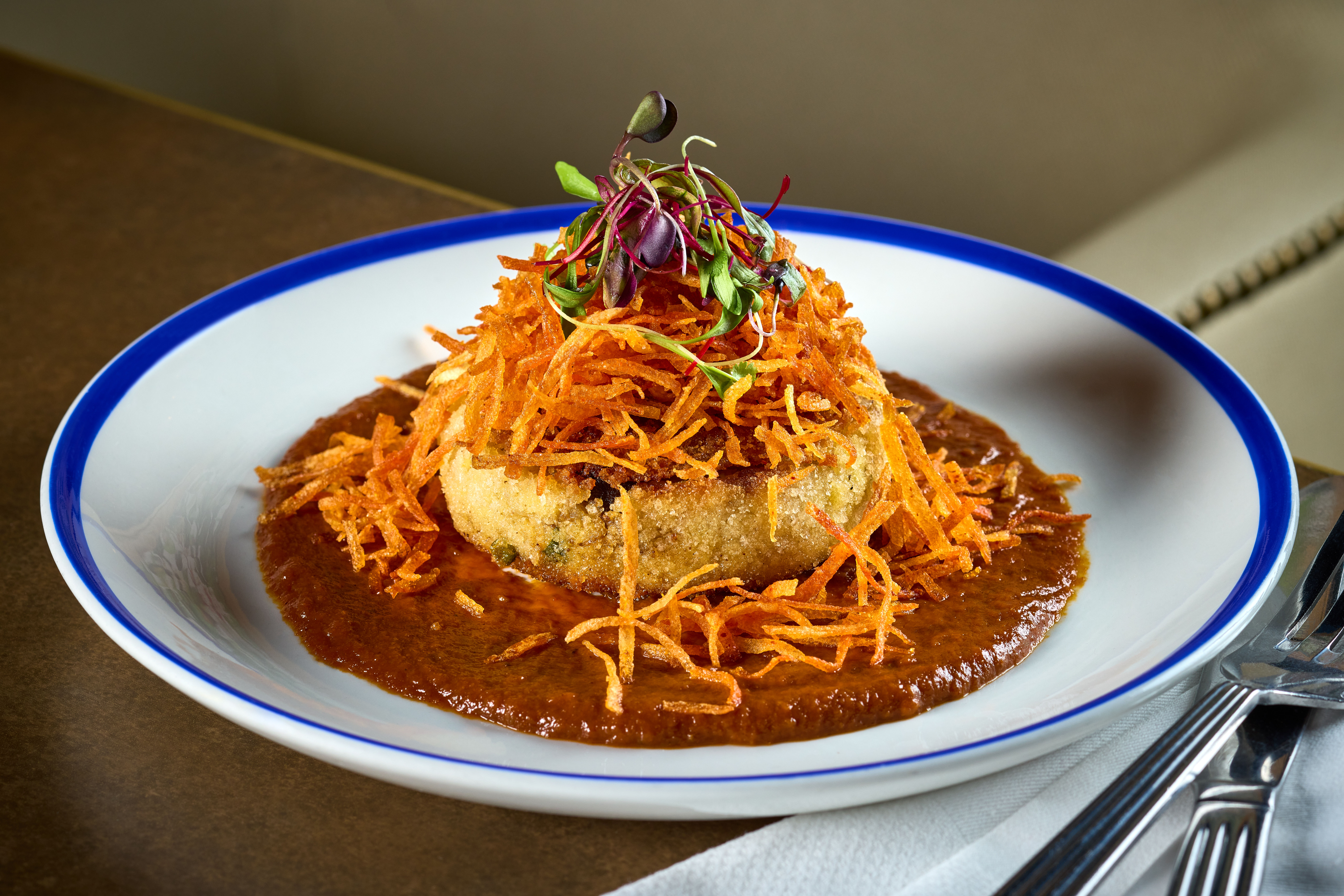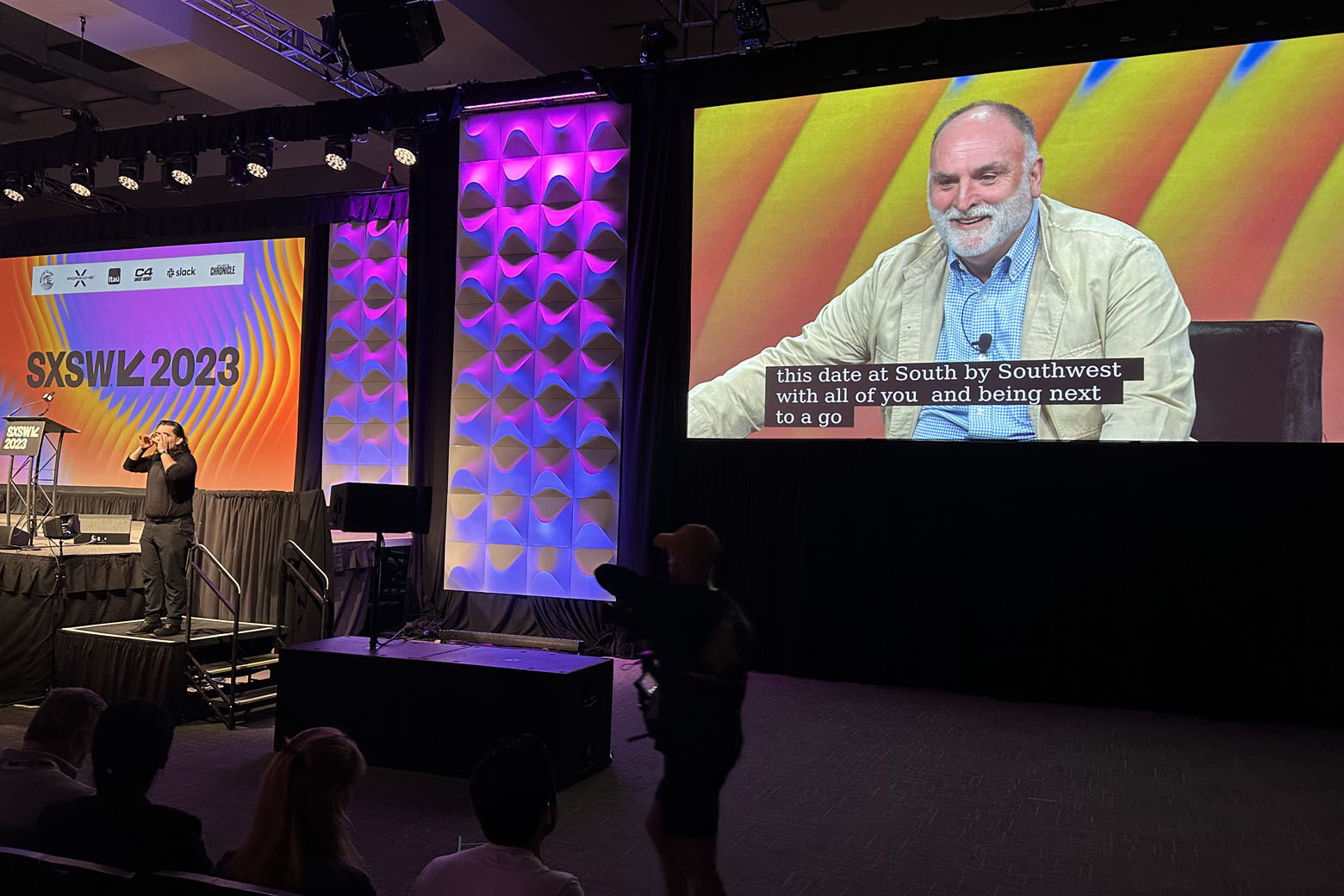
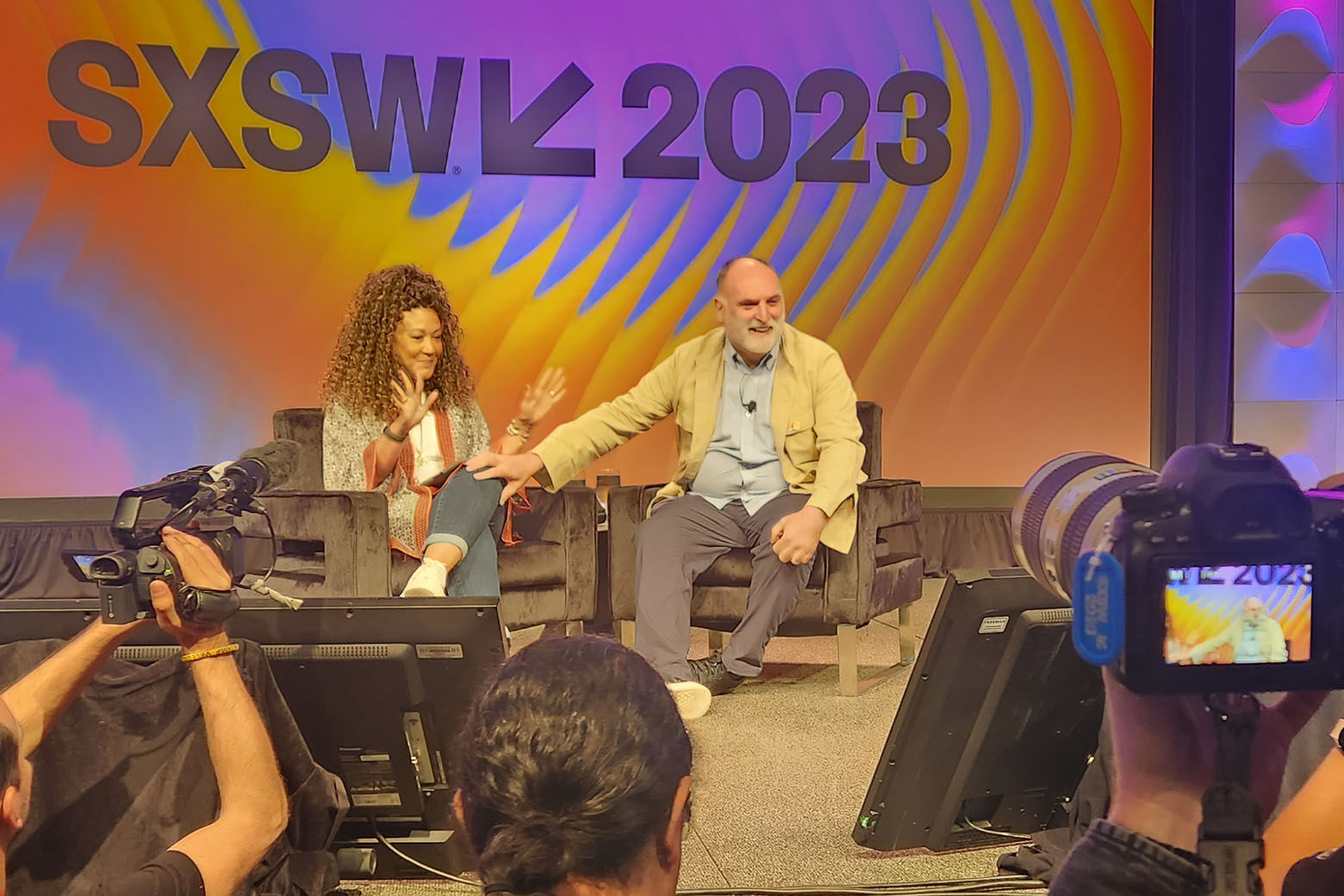

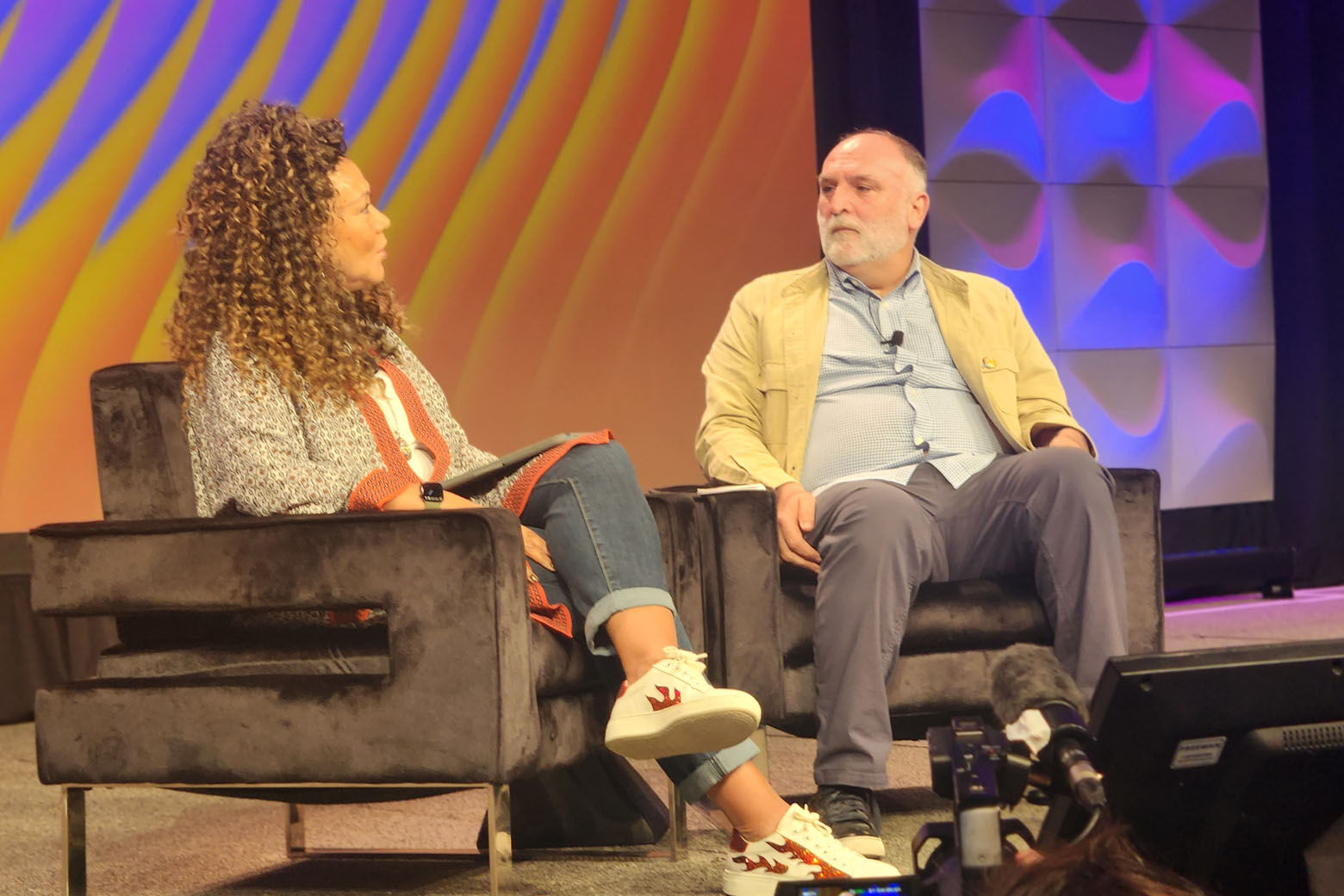
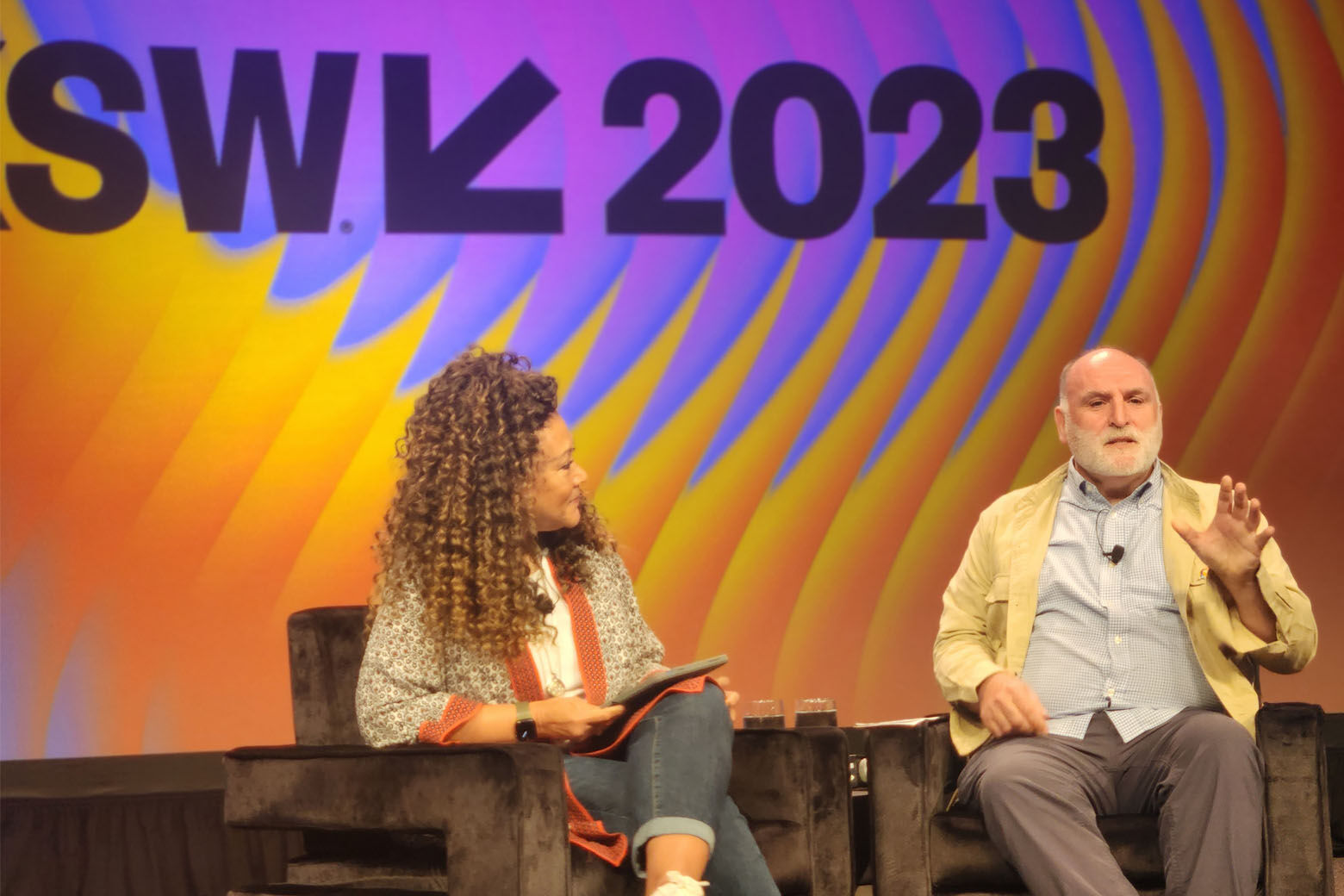
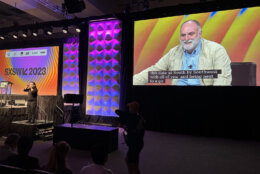
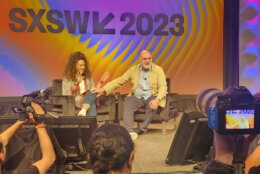
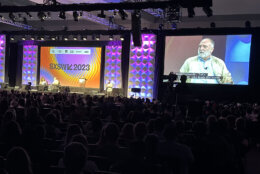
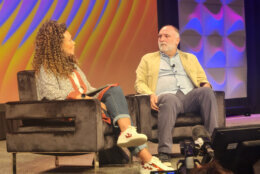
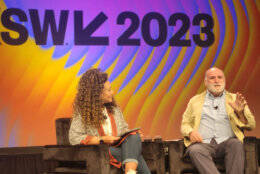
While legendary Chef José Andrés is universally renowned for his worldwide efforts to bring hunger relief to regions impacted by war, natural disasters and famine, he brought stories of his adopted hometown of Washington, D.C. to the forefront in Austin, Texas, this week at the South by Southwest conference.
Speaking to a jam-packed crowd of 2,500 during a keynote address in a massive Austin Convention Center ballroom Saturday afternoon, the celebrated chef regaled the tales of his younger days in D.C., with a particular focus on the elements that transformed him from a highly successful restaurateur into one of the world’s best known philanthropists.
“It all started at the DC Central Kitchen, where I learned when I was very young about the power of food to change the world,” said Andrés, seated alongside Washington Post columnist and former host of NPR’s All Things Considered, Michele Norris. “That experience allowed me to realize that we all have a talent that goes beyond how we perceive ourselves … that we all need to believe more in ourselves because we are all more powerful than what we realize.”
For Jose Andrés, the power of using food to change the world is not about the product itself but rather about the people behind it.
“Today,” Andrés said, “everybody is talking about food waste.”
“Wrong! Forget food waste. What we are doing by wasting food is actually we are wasting people. We are wasting the lives of people,” he said.
From there, he took the audience back to his early days in the nation’s capital, beginning with his involvement with DC Central Kitchen, where he met the organization’s founder Robert Egger.
“Robert Egger is a fascinating human. Because he was a bartender, he saw all this waste happening in restaurants and he thought, ‘We need to be sure we have no more waste.’ In response, Egger brought to the world novel ideas such as bringing the wasted food to the people; by hiring ex-convicts and ex-homeless and training them to be cooks … in the process making food to feed the homeless population of Washington, D.C.
“Right there is where I saw that we should not just be throwing money at the problem but investing in the solution,” he said.
For nearly an hour, Norris fed the chef with questions and commentary designed to comfortably set the table upon which Andrés served up several tales of his back story. When NPR wanted to produce a national radio feature on Andrés’ mission, they mandated that it be produced in a studio, but Andrés insisted it take place inside the DC Central Kitchen facilities.
“That was a nightmare for an audio engineer because it was a big, loud kitchen, but you insisted we do it there, so we did,” Norris said to Andrés. “You wanted to show all this noise in the background, but the reason you wanted to do it there always stuck with me. You wanted to let the public know about the people who worked at DC Central Kitchen … that their work was so important that a national broadcast had to come into their realm and show what they did, so those listening to the show could hear it and realize what went into it.”
With a passion for people, Andrés ultimately founded Jaleo, and within a few short years, his restaurant empire grew to include several other prime establishments including Zaytinya, Nubeluz, Oyamel, Barmini and others, all of which served to provide an even greater platform for his messaging. Yet, while today he is widely recognized for his prowess as a visionary executive chef and culinary master, he prefers to spend his days serving as the inspirational voice behind his overarching personal mission to end hunger and deliver food to those in need.
And that message is certainly no stranger to SXSW. Last year, as a fixture for several years at the WeDC House — Washington’s on-site activation during South-By in Austin — legendary director Ron Howard brought Andrés’ vision to a new level when he unveiled We Feed People, a documentary focused on Andrés work in Puerto Rico, New Orleans, the Carolinas, Mexico, Haiti, Nashville, Indonesia and more.
Fast forward to SXSW 2023, where he had the grand stage all to himself.
Among his most salient points during his presentation, Andrés said:
- “Big problems often have simple solutions. One meal at a time is how you can start hoping to change the world.”
- “There should be markets in every community in America, and no food deserts.”
- “We are never going to be really changing the world if we don’t take risks.”
- “People don’t want our pity, people want our respect.”
And lastly:
- “How are we going to find solutions to the problems if we don’t listen to the stories of the people who are facing those problems?”
He also struck a massive chord when he asked, “Do you know how many times we go to a conference about hunger … and none of the people we speak to have ever been hungry?”
Without question, the audience ate that up.
Ultimately, he summed up his entire mission by returning to what he learned from his partner and mentor Robert Egger.
“Remember this phrase because I wish I came up with it, but it was Robert. He said ‘philanthropy seems to be always about the redemption of the giver, when it must be about the liberation of the receiver.’”
And that’s José Andrés’ mission — to liberate those around the world for whom lack of quality food is not just a problem … but an ever-present condition.
It’s a battle he continues to fight every single day … and he told us so this past weekend in Austin.
Steve Winter and Kenny Fried are WTOP contributors who work for Brotman|Winter|Fried, a division of Sage Communications.

